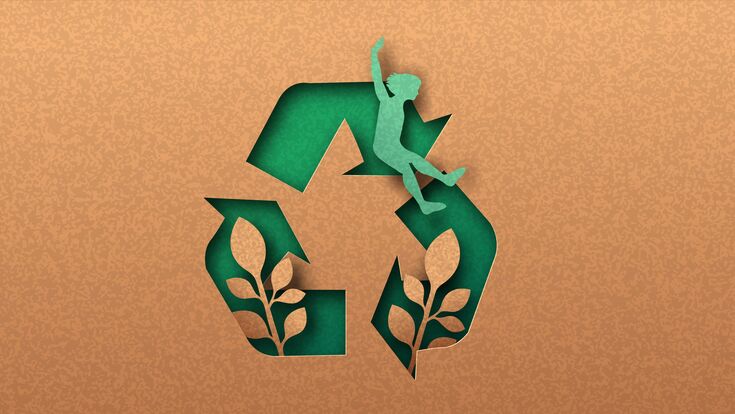Green Deal : EU invests in recycling schemes

The European Commission announced an investment of over €110 million into LIFE programme integrated projects for environmental and climate protection, selected after a call for proposals covering the year 2020. The funding will support new major environmental and climate projects in 11 EU countries - Cyprus, Czechia, Denmark, Estonia, Finland, France, Latvia, Lithuania, the Netherlands, Poland and Slovenia. The projects contribute to a green recovery from the COVID-19 pandemic and support the European Green Deal's objectives of making the EU climate neutral and zero-pollution by 2050. They are examples of actions to deliver key European Green Deal objectives under the EU Biodiversity Strategy for 2030 and the EU Circular Economy Action Plan.
Executive Vice-President responsible for the European Green Deal Frans Timmermans said: “We have no time to waste when it comes to the climate, biodiversity and pollution crises. The LIFE programme provides direct support to projects across the EU and enables entire countries and regions to protect and restore nature. Nature is our biggest ally and we need to take care of it so it can take care of us. My congratulations to each of the projects selected today.”
Integrated projects allow Member States to pool additional EU funding sources, including agricultural, structural, regional and research funds, as well as national funding and private sector investment. Altogether, the 11 projects are expected to attract more than €10 billion of complementary funds, significantly multiplying the resources allocated today to make a real difference on the ground.
Four projects involve waste management and recycling. They are:
- In Cyprus, a project will aim to improve the infrastructure and collection systems for recyclable and biodegradable waste.
- In Latvia, the focus will be on improving separate waste collection and reuse of municipal waste.
- In Denmark, a project will work on waste prevention and on setting up a better waste regulatory framework.
- The project in Slovenia will aim to achieve a better recycling rate of non-hazardous construction and demolition waste, among other actions. In total, four projects will focus on waste prevention and recovering resources, contributing to the goals of the EU's Circular Economy Action Plan and the Waste Framework Directive.
Background
The LIFE programme is the EU's funding instrument for the environment and climate action. It has been running since 1992 and has co-financed more than 5 500 projects across the EU and beyond. The Commission has increased LIFE programme funding by almost 60% for the 2021–2027 period. It now stands at €5.4 billion. LIFE has currently four sub-programmes: nature and biodiversity, circular economy and quality of life, climate change mitigation and adaptation, and clean energy transition.
The LIFE programme provides funding for integrated projects. These projects support the implementation of EU environmental and climate legislation and policies, on regional, multi-regional, national or trans-national level. Integrated projects help Member States comply with key EU legislation in six areas: nature conservation, water, air, waste management, climate change mitigation and climate change adaptation.
